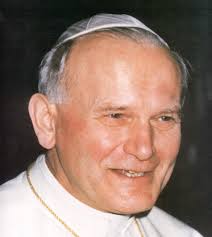Throughout the Bible, God reveals Himself to us because of His desire for a loving relationship with each one of us. Sin is our rejection of this loving relationship that we enjoy with God.
St. Paul states, “For the wages of sin is death, but the gift of God is eternal life in Christ Jesus our Lord.” (Rom 6:23) Here we see that death is a result of sin and is the opposite of eternal life in Christ. The connotation of ‘wages’ is that death is something that we earn; it stems from our choice.
Many read parts of the Old Testament and overlook God’s perpetual love; focusing on the repugnant gore and violence, they assign undue weight to the horrible things that happen to people. How could a God who is Love do or allow these horrible things to happen? If God really loves us, the thought goes, would He be so unrelenting and harsh? This theology considers death as a punishment. I suggest instead, and will explain below, that the result of sin (wages earned) is not punishment but rather consequence.
A definition of punishment is “the infliction or imposition of a penalty as retribution for an offense”, while consequence is “a result or effect of an action or condition”. If death is punishment, then it would come from God as a penalty for our misbehavior. As consequence, however, death does not come from God, but rather out of the nature of our not accepting the relationship of love that we enjoy with God. Spiritual death is the absence of a relationship with God- our not even acknowledging His existence. Physical death is a consequence of our existence in this material/physical world that is limited by space and time.
Sin – the rejection of God’s intended relationship of love – enters human reality in Genesis 3 with the depiction of Adam and Eve eating of the forbidden fruit. As portrayed in the Bible – Old Testament and New – God’s reaction to sin is one of protection for the sinner. God’s response in Gen 3:17-19 (and Gen 3:16) is clearly that God, in the aftermath of the sin, prepares humankind for life in this new reality that exists as a result of sin. He is not punishing Adam and Eve, but rather lovingly protecting them. God is forewarning them of the new reality that they have chosen; forewarned is forearmed! This understanding is consistent throughout all facets of the Old Testament including the psalms and narrative and prophecy and wisdom literature; it is also consistent throughout the New Testament.
Indeed the Bible, as an indicator of our relationship with God, is the story of our journey from the Garden of Eden through death/sin to redemption/eternal life in Christ as portrayed in Revelation.
In the Old Testament God is consistently the Good Shepherd tending His flock, perpetually bringing the outliers (sinners) back into the fold, i.e., a loving relationship. All it takes is our sincere repentance, which is a result of our acknowledging our true and happy relationship to God: that He is the Creator and we are the Created.
— Eric Wolf
 Today as the liturgical date for canonization of our two recent popes is not without meaning – even irony – for one of these.
Today as the liturgical date for canonization of our two recent popes is not without meaning – even irony – for one of these.